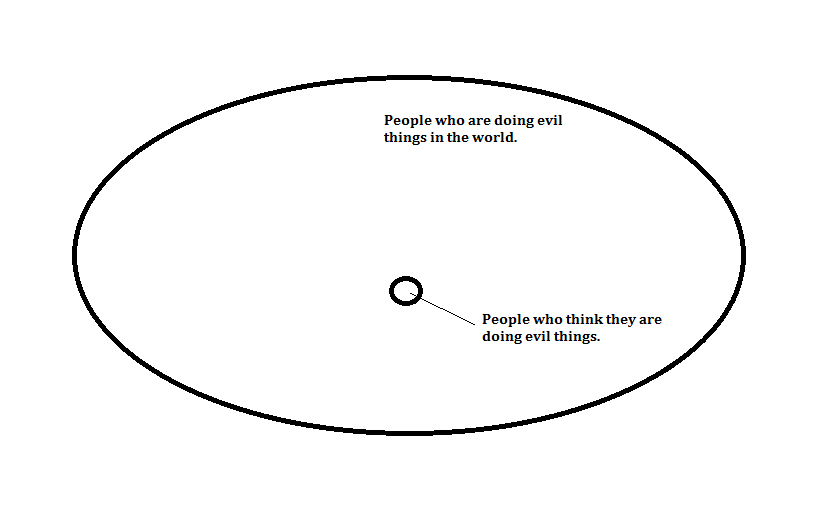
It’s really important to remember that almost everyone thinks that what they are doing is for the greater good and that very few people will actually think of themselves as evil. So many people work really hard, and some of those people work hard in ways which are counter-productive to forming a sustainable global community, they just don’t see it.
How can you even tell that what you are doing is against the greater good? What warning signs should you heed that tell you that you are doing an evil act? Is it entirely obvious? I’m not sure that it is.
I’m not saying that we should cut anyone any slack for doing evil things, I’m saying that we need to act as though they don’t know they are doing evil.
Darcy Mullin says:
Geez, thanks David. Now I’m wondering if I’m part of the probelm ;-). It’s an interesting question – it seems that in education, well in BC anyway, we are polarized…the strongest voices anyway. Both sides, (I would like to believe) working in what they believe to be the best interests of education. Murky waters indeed.
May 31, 2011 — 3:26 pm
Mylene says:
This holds true in so many ways… you could recaption as “percentage of the time I feel like I’m teaching effectively vs. percentage of the time I actually am” or “percentage of the time my students feel confident they can solve a problem independently vs. percentage of the time they actually can.” It turns out that how we feel is a good way to assess our feelings. It is not a good way to assess teaching, learning, or the effects of our actions. The proof is in the tasting, not the pudding.
So, what warning signs should we heed? The proof is in the effect, not the intention. You mention that it’s sometimes unclear what the effects are. I agree. And some effects may be unknowable. But it’s worth asking: have I put myself in a position where I am likeliest to find out about the effects? If not, why not? It’s pretty easy to say “It’s not my fault, I can’t see the effects” with my eyes closed. What I’m saying is that I have a responsibility to seek out evidence of the effects of my action, not just wait to stumble across it by chance. If I’m not looking for that evidence, I probably won’t find it (or won’t recognize it). When I’m doing this well, I’m asking myself, “where am I not looking?” The variable then is whether or not I have the guts to face the evidence I find without hiding behind denial, defensiveness, or self-pity. Sometimes I do, sometimes I don’t.
I agree that we should ask ourselves if people realize the effects of what they’re doing. I think we should also ask ourselves if the reason they don’t realize is that they are choosing not to look.
May 31, 2011 — 4:37 pm